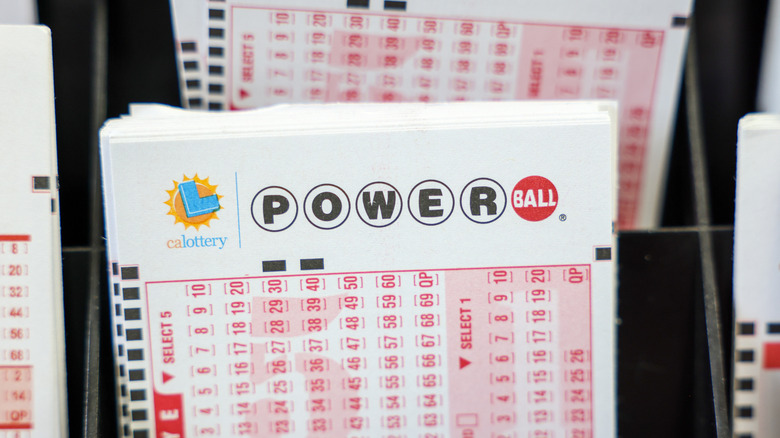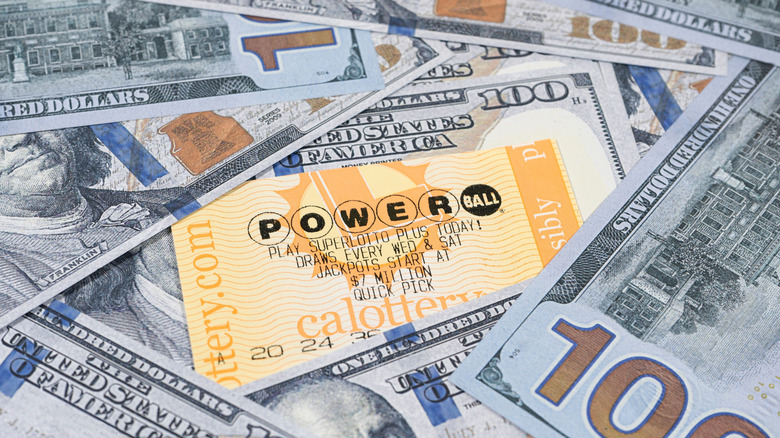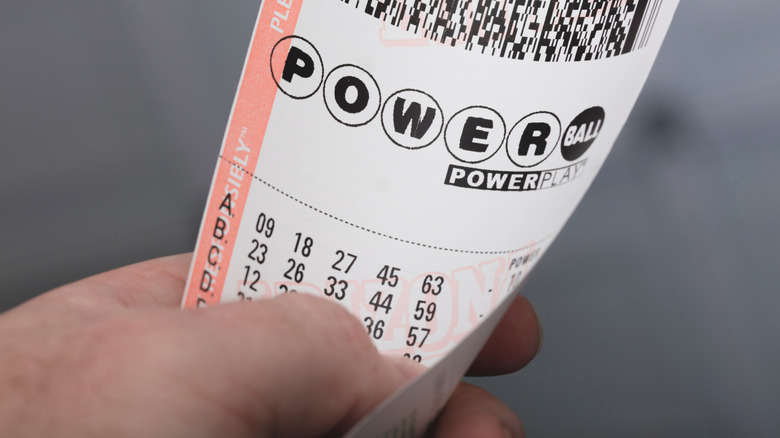Weird Rules Powerball Winners Have To Follow
Powerball is just about as iconic as lottery games get, but as is so often the case with games of chance, winning it is far from simple. Apart from the overwhelming odds against getting your hands on a winning ticket, there are many secrets the lottery doesn't want you to know. Winning doesn't even necessarily make you happy. On the contrary, it can outright suck to win the lottery, and the sudden wealth can put such a big target on a person's back that many lottery winners have been murdered.
There are also several steps between winning the lottery and getting a sudden influx of money, and some of them can be pretty surprising. For the overwhelming majority of people, winning the Powerball lottery is something they're aware can technically happen, though they never get to actually experience it themselves. Because of this, the logistics of what happens after the initial endorphin rush of holding a ticket with the winning numbers elude many. As it turns out, there's a whole lot of rules that a winner has to pay attention to, and some of them are extremely counter-intuitive. Here's a look at some of the strangest rules Powerball winners must deal with.
Powerball winners must figure out whether they can maintain anonymity
When a person unexpectedly wins millions or even billions, keeping their name out of the news can be an outright safety measure, considering the many pitfalls that a known lottery winner can face. Unfortunately, this isn't always possible. Powerball requires jackpot winners to make their identities public and releases their names on its website... except, that is, when it doesn't.
Powerball anonymity rules are complex, and releasing the winners' names is far from a universal approach. Rules for doing so can change a lot between different jurisdictions. The winner has to present the ticket in the same state they bought it, and as such, they're subject to said state's laws when it comes to protecting their anonymity. Some jurisdictions do allow the winners to remain anonymous. States such as West Virginia, Virginia, and Texas require the win to be a seven- or even eight-digit sum to allow for this, but others allow the winners to stay anonymous no matter how small their win is. As such, a winner with a penchant for privacy may want to check whether they purchased their ticket in one of the 18 states to allow for some form of anonymity.
There's also another, somewhat more labor-intensive way to remain anonymous. Powerball winners have been known to set up a trust or a limited liability company, in which case the company name is publicized instead of the winner's own name.
Ticket expiration rules can vary greatly between jurisdictions
Let's say you're lucky enough to have a Powerball winning ticket. After the initial screaming and excitement dies down, it's tempting to think that the lottery's representatives will turn up at your door with a trumpet fanfare and the key to the city on a velvet cushion. Sadly, this couldn't be further from the truth. It's entirely on you to take the ticket to the appropriate Powerball authorities and claim your prize before its expiration date. So, when will the ticket expire? Unfortunately, the only real answer to that is: It depends.
Powerball tickets famously have an expiration date. It's why many jackpot wins listed on their site have "Unclaimed" in place of the victor's name. What's more, the expiration changes from area to area. At worst, you only have 90 days to claim your ticket, so you don't really have all that much time to let the hype die down and figure out how to reorganize your life before you have to jump into the lottery-winner media frenzy. In some other jurisdictions the winner will have a full year to present the ticket, which provides more time to get a handle on things ... provided they don't lose the ticket before then, of course.
Granted, the expiration date is printed on the ticket, so the ticket holder isn't entirely lost at sea. Still, it's strange that such a crucial part of the process isn't standardized in all areas.


